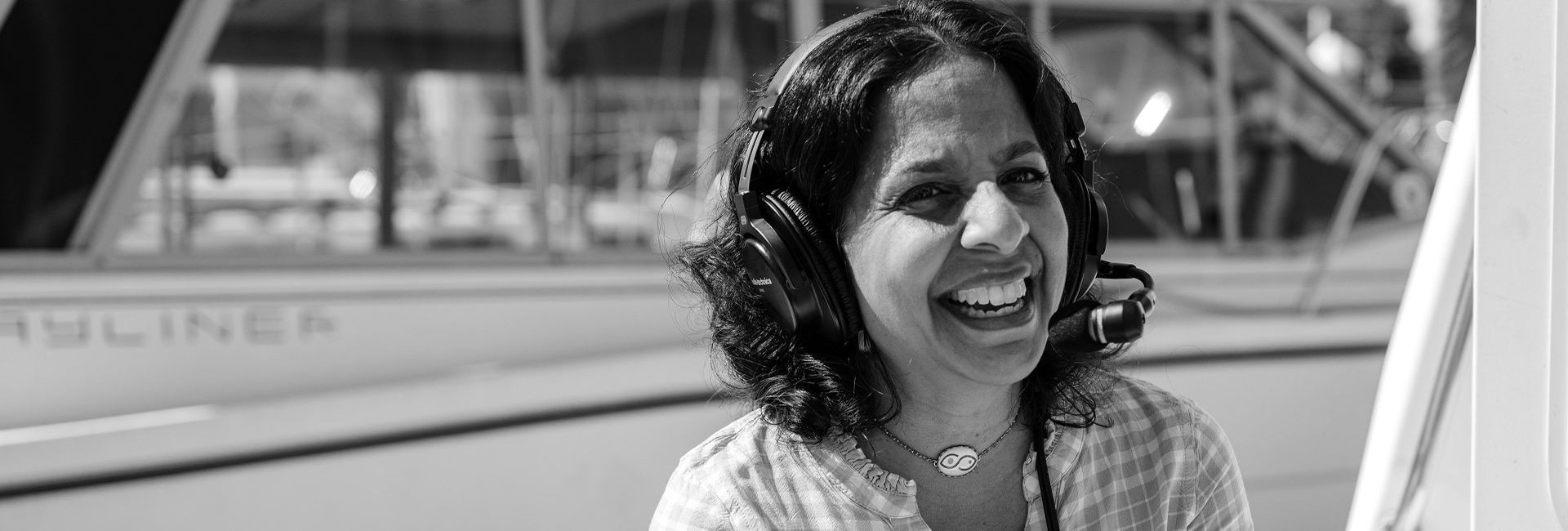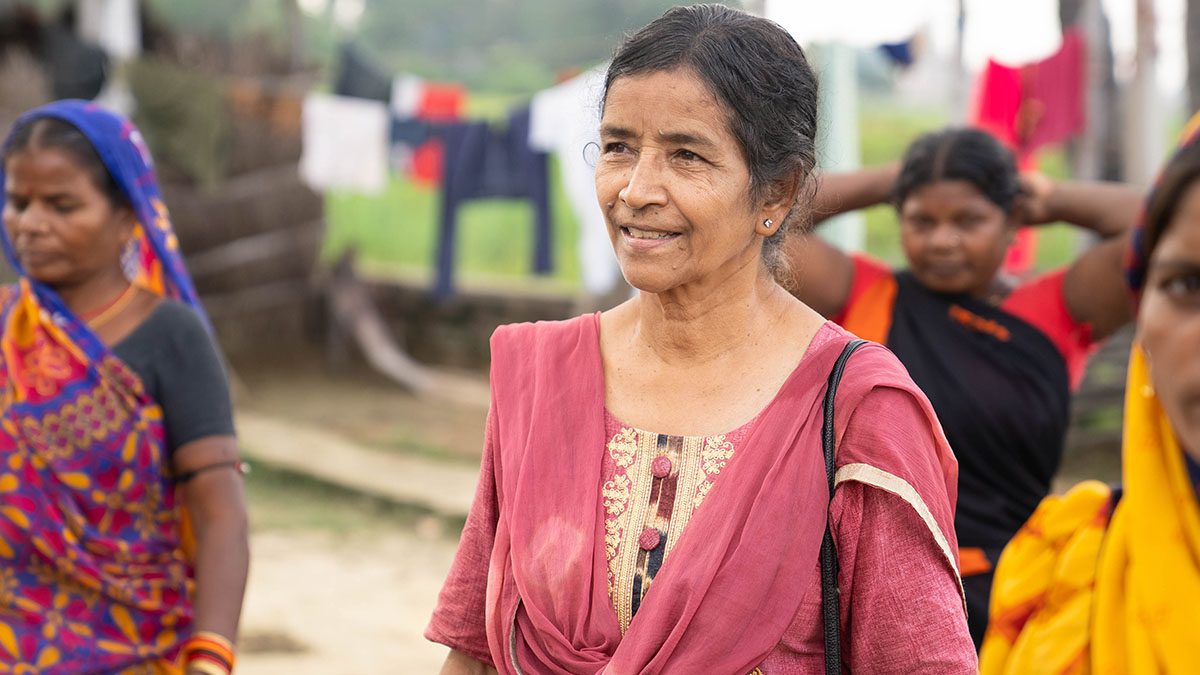(September 23, 2024) Rains in the Bay area of San Fransisco turn into stormwater floods that wash over more than 1600 industrial sites carrying toxic chemicals. The water then discharges into creeks, causing them to overflow and dump untreated wastewater into the Bay. As the San Fransisco Baykeeper, Indian-origin Sejal Choksi-Chugh is the driving force defending the Bay. Whenever a company spills petroleum coke or toxic coal in the water, the activist sues to stop them from spilling or comes up with a better solution when the local water agency proposes a plan which would take 120 years to flush mercury out of the Bay. The executive director of San Fransisco Baykeeper is doing everything – from reducing sewage and oil spills to preventing trash and pesticide runoff – to keep the Bay protected.
The Indian American along with her team patrols the water identifies damaging activities investigates polluters and holds government agencies accountable. “The work of a Baykeeper is very hands-on. I am on the water pretty frequently, looking for pollution. We have a field inspector and a pollution hotline. We also have a drone, so I am lucky,” Sejal said in an interview.

Sejal Choksi Chugh is the executive director of San Fransisco Baykeeper
Cancer survivor to Baykeeper
Compassion and empathy are the values that were instilled in Sejal Choksi as a youngster. It was on a trip to India as a kid that she was moved by the incident of a mahout (elephant rider) hitting the animal enroute a fort in Jaipur. “I was visiting India, doing a touristy elephant ride in Jaipur. I broke down as the elephant was being whipped constantly to egg it on to climb the hill. It bothered me and I demanded that I be let down. That is the moment I realised that the welfare of animals, how they are treated, mattered to me,” she told the website. This one incident made her passionate about animal care, and let her understand that kindness goes a long way. While animal care was a cause she gravitated towards, she also began voicing her opinion on environmental justice after a quarry and asphalt plant came up next to her school. Little did she know that this was a stepping stone toward her work as Baykeeper.
While growing up in Atlanta in a desi family, the Global Indian understood the importance of recycling and restoring. However, outside her safe haven, she would often find her world covered with perpetual powder and dust, which made her realise the importance of public health at a young age. “We lived near a quarry. When I would come out of school, everything used to be covered in brownish dust. My brother had asthma, and my parents and I ended up having cancer. The company exposed us to such risk and pollution in the name of profits – it was impossible to accept. Right from high school, I was looking to stop pollution in neighbourhoods and that journey led me to Baykeeper,” added the activist.

Sejal Choksi at San Fransisco Bay Area
Taking on the big corps
Not one to bow down to big corporations, the cancer survivor found her calling in protecting communities from environmental damage. After completing her bachelor’s degree in anthropology and human biology from Emory University, she enrolled at the University of California, Berkeley for a master’s degree in environmental law. Thanks to an Equal Justice Works legal fellowship in 2002, she stumbled upon an opening at San Francisco Baykeeper and joined them straight out of law college, as the activist knew she “never wanted to be anywhere else.”
It was in 1989 that San Fransisco Baykeeper started defending the Bay area, and for over 30 years, their lawyers, scientists, and advocates have taken on the biggest threats to San Francisco Bay and its watershed. With Sejal Choksi as the torchbearer, her focus covers the area of the Bay and its tributaries. In the last few years, her leadership has played a pivotal role in reducing pollution from stormwater drains and sewage spills from reaching San Fransisco Bay. For someone well aware of the effects of global warming, she says that sea levels are expected to rise three to ten feet in the next 50 years. “Baykeeper has identified 1100 toxic lands — historically contaminated and current industrial sites. This pollution on land will move to water, threatening wildlife and impacting people in the Bay Area. There are a lot of recreational users in SF Bay. There will arise health concerns — we are not only about the birds and fish but also about human health,” added the activist.

Sejal Choksi is playing a pivotal role in keeping the Bay Area protected
For the unversed, the Bay Area of San Francisco, located along California’s northern coast, is known for its rolling hills, scenic coastlines, and the iconic Golden Gate Bridge. It encompasses several cities, including San Francisco, San Jose, and Oakland, with Silicon Valley to the south being the global center for technology. Thousands of Indian professionals have made Silicon Valley their home, working in industries like software development, artificial intelligence, and data science. Many live in suburban towns like Cupertino, Sunnyvale, and Fremont, which are known for their proximity to tech headquarters and offer a strong sense of community with a thriving Indian diaspora.
The ‘Waterkeeper’
The water warrior is also giving back to society in her way as she collaborates with Waterkeeper Alliance – the largest non-profit focused on clean water – to provide drinkable, swimmable, and fishable water everywhere. “It’s a big movement of over 350 Waterkeepers. There are Waterkeepers in India who are helping to clean rivers in various parts of the country that are a part of the Waterkeeper Alliance. There’s a lot of information sharing that happens during talks, presentations, and mentorship meetings,” she said.
Sejal, who lives with her two teenage kids and husband in San Fransisco Bay Area, is doing her part to give back to her country of origin by supporting water groups in India.
- Follow Sejal Choski Chugh on Linkedin



